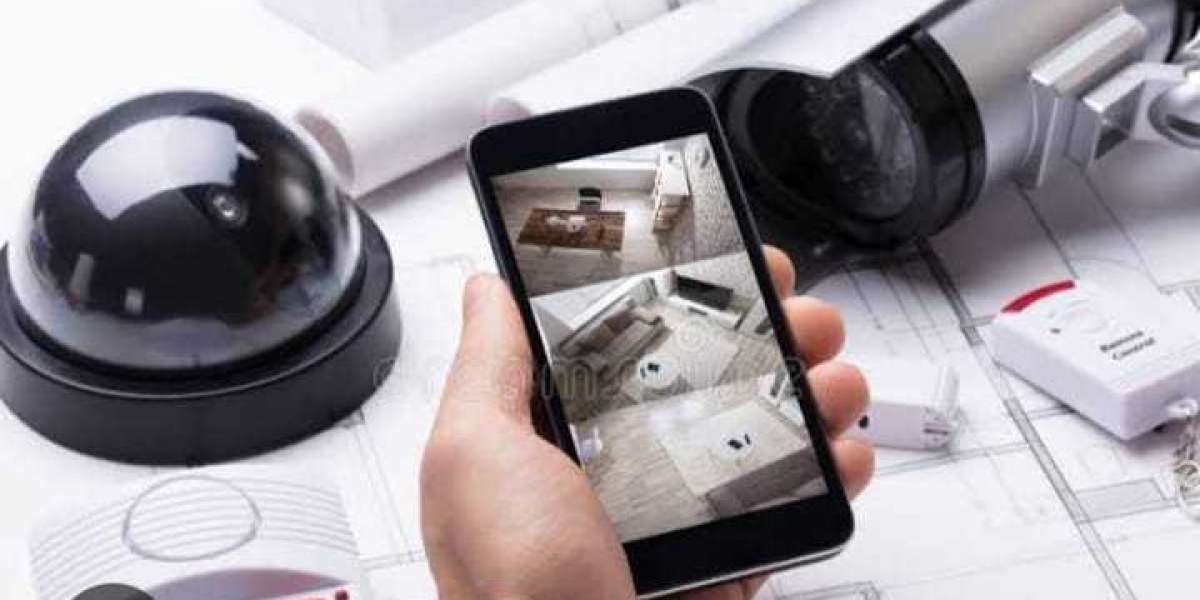In today's fast-paced world, the need for robust security measures has never been more important. With crime rates fluctuating, technology is playing a key role in safeguarding homes, businesses, and valuable assets. Security sensors are at the forefront of this technological revolution, offering reliable solutions that help prevent unauthorized access, detect unusual activity, and ensure peace of mind.
What are Security Sensors?
Security sensors are devices designed to detect various forms of threats, from unauthorized access to environmental hazards, and alert property owners or security personnel. They can detect motion, sound, heat, or changes in the environment and trigger alarms or notifications. These sensors are often integrated into modern security systems, offering both preventive and responsive protection.
Types of Security Sensors
Motion Sensors: These sensors detect movement within a defined area. They use infrared (IR) or ultrasonic technology to sense changes in temperature or the movement of objects. Motion sensors are commonly used in both indoor and outdoor environments and can be integrated with lighting systems, cameras, or alarms to trigger responses.
Door/Window Contact Sensors: Contact sensors are placed on doors and windows to detect if they are opened or tampered with. They are an essential part of perimeter security, ensuring that any unauthorized entry is immediately noticed.
Glass Break Sensors: These sensors are designed to detect the sound frequency or vibration of breaking glass. If a window or door is smashed, the sensor will immediately trigger an alert, allowing for a swift response.
Smoke and Fire Detectors: Security is not just about protecting from intruders; it's also about safety from hazards like fires. Smoke and fire detectors can sense the presence of smoke or rapid temperature increases, notifying users and alerting emergency responders if necessary.
Carbon Monoxide Detectors: An often-overlooked but critical security sensor is the carbon monoxide (CO) detector. This sensor detects the presence of dangerous CO gas, which is odorless and colorless but highly toxic. Installing CO detectors is especially important in homes with gas-powered appliances.
Panic Buttons and Emergency Sensors: Panic buttons are security devices that, when pressed, send an immediate alert to security personnel or law enforcement agencies. These sensors can be installed in easily accessible locations for personal security or in high-risk areas like bank vaults or retail stores.
How Do Security Sensors Work?
Security sensors are typically connected to a central control panel or monitoring system. When a sensor detects an unusual event, it sends a signal to the control system, which can then trigger alarms, send notifications to the user, or alert emergency services. Many modern systems are equipped with smart capabilities, allowing users to monitor and control their security systems remotely via smartphone apps.
Security sensors can be used in both residential and commercial applications. For homes, they provide an additional layer of protection against burglars, while also keeping residents safe from environmental hazards. For businesses, security sensors can prevent theft, monitor employee safety, and reduce liability in case of accidents.
Benefits of Security Sensors
Deterrence of Crime: A visible security system with sensors can deter burglars and criminals from attempting to break in. The mere presence of sensors like motion detectors or cameras can send a strong message that a property is well-protected.
24/7 Monitoring: Security sensors provide round-the-clock surveillance, ensuring that any unusual activity is quickly identified. This can be particularly useful for properties that are left unattended for long periods, such as vacation homes or offices.
Cost-Effective: While security systems may seem costly initially, the long-term benefits of having reliable protection outweigh the expense. Insurance premiums may also be reduced when sensors are installed, as they lower the risk of theft or damage.
Peace of Mind: Knowing that your home or business is equipped with a comprehensive security system gives peace of mind. Whether you're at home or away, security sensors provide constant reassurance.
The Future of Security Sensors
As technology continues to advance, so too will the capabilities of security sensors. Innovations like AI-driven facial recognition, smarter motion detection, and advanced data analytics are making security systems even more effective at identifying threats. The integration of sensors with IoT (Internet of Things) devices and cloud storage is also providing users with more control and flexibility over their security systems.
Furthermore, as cyber threats continue to rise, cybersecurity measures will play a larger role in protecting the integrity of security sensor systems, ensuring that personal data and security devices remain secure from hacking and tampering.
Conclusion
Security sensors have become an integral part of modern security systems, offering a proactive approach to safeguarding property and loved ones. Whether it’s protecting against break-ins, environmental hazards, or emergencies, these sensors provide essential protection and peace of mind. As technology evolves, the role of security sensors in our lives will only grow, making them indispensable for home and business owners alike.








